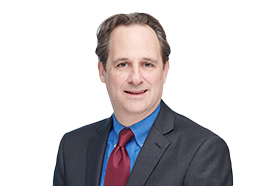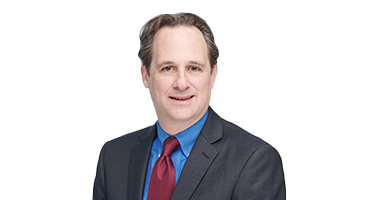During the past month, while state budget legislation activity addressing major tax reforms has heated up, several administrative and judicial decisions addressing state and local tax hot topics were also noteworthy. In the area of income tax, Alabama enacted legislation adopting mobile workforce provisions and decoupling from federal income tax provisions disallowing the expensing of research and experimental costs. In New Jersey, an appellate court affirmed a decision that retroactively applies a corporate business tax addback regulation. Also, the New York State Tax Appeals Tribunal agreed with an administrative law judge that a nonresident was subject to New York individual income tax during the time that he was required to work remotely during the COVID-19 pandemic. With respect to indirect taxes, the Georgia Court of Appeals held that a popular ridesharing service was responsible for collecting sales tax between 2012 and 2015 under regulations directed at taxicab companies. Finally, the New York State Tax Appeals Tribunal determined that a telecommunications company was not subject to sales tax on the amount it recouped from customers to pay its mandatory contribution to a federal universal service fund. These developments are discussed in the State and Local Thinking newsletter for May.
Alabama enacts mobile workforce law, allows research expensing
On May 13, 2025, Alabama enacted legislation, H.B. 379, exempting certain nonresidents from the state’s individual income tax if they perform work in the state on 30 or fewer days during the year. On the following day, Alabama enacted separate legislation, H.B. 163, which decouples from federal law and allows the retroactive expensing of research and experimentation (R&E) costs.
Beginning with the 2026 tax year, Alabama has become the latest of several states to enact mobile workforce legislation, under which pay received by nonresident individuals is exempt from the state’s income tax if four separate conditions are met:
- The compensation is paid for employment duties performed by the individual in Alabama on 30 or fewer days in the calendar year.
- The individual performed employment duties in more than one state during the calendar year.
- The compensation is not paid for employment duties of a professional athlete, professional entertainer, or public figure
- The nonresident individual’s state of residence provides a substantially similar exclusion, does not impose an individual income tax, or the individual is exempt from Alabama tax under the U.S. Constitution or federal law.
If these conditions are satisfied, the employer is not required to withhold income taxes from the compensation. Alabama joins states such as Illinois, Indiana, Louisiana, Montana and West Virginia that have enacted mobile workforce legislation with a day-based threshold. Similar legislation repeatedly has been considered by Congress but has not been enacted, though in April 2025, federal mobile workforce was again introduced and may be considered in the upcoming Congressional reconciliation process in the coming months.
In addition to the mobile workforce legislation, Alabama enacted legislation decoupling from the federal treatment of R&E expenditures, again joining several other states that have recently done so. Under IRC Sec. 174, prior to enactment of the Tax Cuts and Jobs Act of 2017 (TCJA), taxpayers were allowed the option to currently deduct R&E expenditures or treat such expenditures as deferred expenses to be capitalized and amortized over their life. As amended by the TCJA, for amounts paid or incurred in tax years beginning in 2022 and thereafter, all taxpayers are required to capitalize R&E expenditures over a five-year period for domestic expenses and 15 years for foreign expenses. The Alabama legislation retroactively decouples from this treatment for tax years beginning in 2024 and beyond, again allowing taxpayers in Alabama the option to immediately deduct R&E expenditures or treat the expenditures as deferred expenses. Taxpayers should consider filing amended returns in Alabama for the 2024 tax year if they would benefit from immediately deducting R&E expenditures. Note that Congress may enact legislation in 2025 that changes the federal income tax treatment of these expenses.
New Jersey court approves retroactive application of addback regulation
On April 29, 2025, in Lorillard Tobacco Co. v. Director, Division of Taxation, the Appellate Division of the New Jersey Superior Court affirmed the New Jersey Tax Court’s decision to retroactively apply the royalty addback regulation, as amended in 2020, to prior tax years to prevent a violation of the federal dormant Commerce Clause of the U.S. Constitution. The Tax Court correctly concluded that although the pre-2020 version of the regulation violated the dormant Commerce Clause, the 2020 amendment was a curative enactment that retroactively resolved the constitutional defect and applies to tax years prior to 2020.
During the 2002-2005 and 2007-2010 tax years at issue, the taxpayer manufactured, marketed, and distributed cigarettes wholesale throughout the U.S., including New Jersey. The taxpayer had no offices, employees or bank accounts in New Jersey during these tax years. In December 1999, the taxpayer entered into an agreement with an affiliated company with no physical presence in New Jersey providing that the taxpayer pay royalties for trademarks and other intellectual property. As summarized by the appellate court, the dispute concerned royalties the taxpayer paid to the affiliate and whether the royalty payments were properly deducted in calculating the taxpayer’s New Jersey corporation business tax (CBT) liability or instead should have been “added back” to the taxpayer’s taxable income.
A New Jersey CBT statute requires an entity doing business in the state to add back otherwise deductible royalties paid to a related member in computing its allocable entire net income. However, the addback does not apply if the taxpayer proves that the addback is unreasonable. Prior to 2020, the contested regulation provided a “deduction shall be permitted . . . [i]f the taxpayer establishes that the adjustments are unreasonable by showing the extent that the payee pays tax to New Jersey on the income stream.” This was the only stated option to provide an exception under the unreasonableness exception. New Jersey Schedule G-2, Claim for Exceptions to Disallowed Interest and Intangible Expenses and Costs, provides for the computation of the deductible amount.
In 2020, during the appeal of this case, the addback regulation was amended to add five specific scenarios for claiming that a disallowed royalty is unreasonable. The amended regulation provides that a deduction may be allowed if the adjustment is unreasonable and one of the following circumstances applies: (i) unfair duplicate taxation; (ii) technical failure to qualify the transactions under the statutory exceptions; (iii) inability or impediment to meet the requirement due to legal or financial constraints; (iv) unconstitutional result; or (v) transaction is equivalent to an unrelated loan transaction. However, the New Jersey Division of Taxation did not change Schedule G-2 to reflect the regulation. The payor’s deduction continues to be limited to the CBT paid by the payee on the royalty addback amount.
The case resulted in protracted litigation and multiple decisions have been issued by different New Jersey courts on the subject. Most recently, in 2023, the New Jersey Tax Court retroactively applied the royalty addback regulation as amended in 2020 to prior tax years to prevent a violation of the federal dormant Commerce Clause. The court determined that the portion of the regulation providing an addback exception in effect prior to 2020 violated the fair apportionment prong of the dormant Commerce Clause due to its geographic limitation for proving that the same income was taxed outside New Jersey. However, this constitutional violation was effectively eliminated in 2020 because the regulation now includes the five scenarios that in the opinion of the Division satisfy the unreasonableness exception to the addback requirement. The court retroactively applied the 2020 version of the regulation to the tax years at issue as the most sensible interpretation of the royalty addback statute. The taxpayer appealed this decision to the Appellate Division of the New Jersey Superior Court.
In the instant appeal, the taxpayer unsuccessfully argued that the Tax Court erred in deciding to retroactively apply the 2020 amendment. The appellate court explained that there are three recognized exceptions to the general principle of applying new statutes and regulations prospectively: (i) when the legislature or administrative agency intended retroactivity of the new provision; (ii) when the parties’ expectations warrant retroactive application; or (iii) when the new provision is curative. As decided by the appellate court, the Tax Court appropriately invoked the third exception. The appellate court agreed with the Tax Court that the 2020 amendment was curative because it eliminated the geographic limitation in the unreasonableness exception, thereby curing the double-taxation problem concerning royalty payments. The revised regulation clarifies how the unreasonableness exception should be applied by the Division. According to the appellate court, “[s]imply stated, the 2020 amendment was curative because it cured a constitutional problem.” Furthermore, the fact that the Division still uses Schedule G-2 does not undermine the curative nature of the 2020 amendment.
Because New Jersey has adopted unitary combined reporting, the related party expense addback is no longer required. Therefore, at first blush, this decision would only be relevant to taxpayers dealing with royalty addback exception issues at audit. However, this decision may have some relevance to taxpayers in other states that continue to navigate similar royalty addback exception statutes. The decision also serves as a reminder that courts often respect efforts to cure constitutional issues on a retroactive basis, which has the effect of preventing aggrieved taxpayers from claiming substantial refunds that could cover lengthy time periods.
New York affirms taxation of nonresident working remotely
On May 15, 2025, in a closely watched case, the New York Tax Appeals Tribunal affirmed the decision of a New York administrative law judge (ALJ). holding that a taxpayer employed in New York who worked remotely from his Connecticut residence during the COVID-19 pandemic was subject to New York individual income tax under the “convenience of the employer” test. Because the taxpayer failed to show that his New York employer required him to perform his job at his Connecticut home, as opposed to anywhere else, the Tribunal agreed the convenience of the employer test was properly applied.
The taxpayer, Prof. Edward Zelinsky, is a resident of Connecticut who was employed as a professor by a law school located in New York City. For the 2019 and 2020 tax years at issue, the taxpayer sought a refund of individual income tax paid to New York for the days he worked from his Connecticut residence. The taxpayer filed his New York State nonresident and part-year resident income tax return for the 2019 tax year and included the portion of his salary attributable to the days that he worked at home in Connecticut. The taxpayer filed an amended return seeking a refund of the tax for the 143 days he worked outside New York during 2019, but the request was deemed to be denied.
For the 2020 tax year, the taxpayer reported all his law school salary as New York source income, including the portion of his salary for the days that he worked in Connecticut. From Jan. 1, 2020, until March 15, 2020, the taxpayer taught his classes in person in New York by commuting from Connecticut three days a week. In March 2020, in response to the COVID-19 pandemic, New York’s governor issued an order requiring businesses to close their work locations and employees to work from home. From March 16, 2020, through Dec. 31, 2020, the taxpayer worked exclusively from his home and never physically went to New York to work. During this time, the taxpayer did not have facilities available to him at the New York campus and taught from his home using the internet. The taxpayer filed an amended return for the 2020 tax year requesting a refund for the days that he worked from Connecticut. Most of the refund request was denied based on the New York convenience of the employer test. The taxpayer appealed the refund denials to the New York Division of Tax Appeals. After an ALJ affirmed the refund denials, the taxpayer appealed to the Tribunal.
New York law provides the state may tax a nonresident only on income that is “derived from or connected with New York sources.” If a nonresident employee performs services both within and outside New York, the portion of the employee’s income derived from New York sources is the ratio of total days worked in New York to total days worked both within and outside the state. The convenience of the employer test, contained in a regulation, provides that “any allowance claimed for days worked outside New York State must be based upon the performance of services which, of necessity, as distinguished from convenience, obligate the employee to out-of-state duties in the service of his employer.” New York courts have held that nonresidents employed in New York who work outside the state when not required by their employer to do so must treat these days as if they had been present in New York.
The Tribunal affirmed the ALJ’s determination that the income the taxpayer received from the law school for the days that he worked from home in Connecticut was subject to New York income tax for the 2019 and 2020 tax years. On appeal, the taxpayer unsuccessfully contended the convenience rule violates due process because it subjects extraterritorial income to New York income tax. The Tribunal agreed with the ALJ that the taxpayer had sufficient contacts with the state to satisfy due process by his physical presence and by availing himself of the New York economic market through his employment. Also, the Tribunal rejected the taxpayer’s argument that the convenience rule violates the dormant Commerce Clause by failing the fair apportionment prong of the four-part test provided by the U.S. Supreme Court in Complete Auto Transit, Inc. v. Brady.
The taxpayer unsuccessfully argued that the days he worked from home should be allocated to Connecticut because he was required to work from home out of the law school’s necessity. The Tribunal agreed with the ALJ that the law school’s decision allowing its employees to work from home, wherever that may have been, did not constitute its own necessity to have those job functions performed in those places. According to the Tribunal, the convenience of the employer rule was properly applied in calculating the taxpayer’s apportionment ratio because he failed to show his employer required him to work from his home in Connecticut. The Tribunal’s decision is not surprising, but in particular, the application of the controversial convenience of the employer rule during the pandemic provides for what is facially an inequitable result. The taxpayer likely will continue to pursue this litigation.
Georgia court holds Uber liable for collecting sales tax
On May 1, 2025, the Georgia Court of Appeals held in Uber Technologies, Inc. v. O’Connell that Uber, the ridesharing service, was responsible for collecting sales tax from its independent drivers between 2012 and 2015. Prior to the enactment of legislation in 2020 requiring rideshare services to collect sales tax, Uber was required to collect sales tax as a “headquarters operator” under a regulation pertaining to taxicab companies.
Uber, which began doing business in Georgia in July 2012, is a technology company that connects consumers seeking transportation services (“riders”) with independent transportation service providers (“drivers”). Riders and drivers download the Uber apps for free, but drivers pay Uber a fee for the services it provides to their drivers, which include acting as a collection agent on behalf of the drivers. Uber collects the money on behalf of the driver by charging the rider’s credit card at the end of the ride. The money then flows to an Uber subsidiary, which remits payment to the driver minus the service fee.
In 2018, the Georgia Department of Revenue audited Uber and assessed substantial unpaid sales tax and penalties during the audit period from July 23, 2012, through June 30, 2015. Uber admitted that it did not collect sales tax from riders in Georgia during the audit period, claiming it relied on drivers to collect any sales tax owed. After the Department denied Uber’s protest, Uber appealed to the Georgia Tax Tribunal. In May 2022, the Tax Tribunal upheld the assessment and determined that Uber was responsible for collecting sales tax from its independent drivers under a regulation applicable to taxicabs because Uber’s app-based business model functioned like a traditional taxicab headquarters. A superior court denied Uber’s petition for judicial review. The Georgia Court of Appeals granted Uber’s application for discretionary appeal.
In determining that Uber was required to collect sales tax, the court considered the relevant tax law. Since the Georgia sales tax was enacted in 1951, the sale of transportation has always been considered taxable as a “retail sale.” Sales tax generally is paid by the person purchasing or receiving the service to the person furnishing the service. However, the Department argued that Uber was required to collect sales tax during the audit period under the taxicab regulation. The court summarized the regulation as providing that cars for hire are required to collect sales tax on fares for transporting people. The determination of whether the tax is remitted directly to the state or to a headquarters operator that is required to remit the tax to the state depends on whether the car for hire has an association with a “headquarters operator.”
After finding that the taxicab regulation is valid, the court explained that the Department had the authority to shift the sales tax payment burden from the driver furnishing the transportation service to the “headquarters operator.” The court explained that even though the taxicab regulation was adopted years before rideshare services existed, this did not prevent the regulation from applying to such “cars for hire.” According to the court, Uber’s argument that the regulation solely applied to the taxicab industry lacked merit. The court also held that Uber met the definition of “headquarters operator” as a person or entity: (i) supervising or directing cars for hire drivers; or (ii) receiving and relaying calls to cars for hire drivers. Uber’s business model is based on receiving and relaying calls because its app functions as a human dispatcher. Also, the Uber app supervises and directs cars for hire drivers under the plain language of the taxicab regulation. Furthermore, the court held that Uber met the definition of “headquarters operator” by allowing drivers to hold themselves out as being associated with the headquarters.
The court also rejected Uber’s argument that the taxicab regulation did not apply because the state enacted a marketplace facilitator statute in 2020. According to Uber, it is a marketplace facilitator that began collecting and remitting sales tax on rides provided by drivers using the app in Georgia when the law became effective. Uber argued that there was no need for the state to enact the marketplace facilitator legislation if it is required to collect tax under the taxicab regulation. The court rejected this argument because the law was amended in 2020 to include a rideshare network service. Accordingly, whether Uber is considered a marketplace facilitator is irrelevant because it is required to collect tax as a rideshare network service provider under current law. Finally, the court rejected Uber’s argument that the tax collection obligation violated the Internet Tax Freedom Act. The decision is informative in that it reflects how courts are able in certain circumstances to interpret and apply relatively historic sales tax statutes to newer technological models.
New York holds telecommunications surcharge not subject to sales tax
The New York Tax Appeals Tribunal held on May 20, 2025, in Time Warner Cable Information Services (NY), LLC, that the fees a telecommunications provider recovered from its customers for required contributions to the Federal Universal Service Fund (FUSF) are not subject to sales tax. In reversing the decision of the administrative law judge (ALJ), the Tribunal determined that the FUSF fees the taxpayer recouped from its customers are receipts derived from its nontaxable interstate and international service. Because the state cannot tax the interstate and international services, it is not permissible to tax a federal regulatory surcharge that is imposed on the nontaxable service.
The taxpayer is a major company that provides intrastate, interstate, and international voice over internet protocol (VoIP) telecommunication services to its customers in New York. As a telecommunications provider, the taxpayer is required to contribute fees to the FUSF that are collected for the Federal Communications Commission (FCC) to subsidize the cost of telecommunication services for schools, libraries, health care providers, and low-income consumers. The amount that telecommunications service providers are required to contribute is determined by their revenue from interstate services, but many providers choose to recover their FUSF contributions from their customers. The amounts the taxpayer charged its customers for the FUSF fees were included in the prices it charged for interstate telecommunications services.
Following an audit, the New York State Department of Taxation and Finance issued a notice of determination asserting additional sales tax of nearly $7.3 million on the charges the taxpayer billed to its customers to recover its contributions to the FUSF. The taxpayer timely filed a request for a conciliation conference with the Bureau of Mediation and Conciliation Services (BCMS). As a result of the conciliation conference, the Department reduced the amount of additional sales tax due to approximately $6.7 million to account for sales tax the taxpayer demonstrated it had charged on New York State Universal Service Fund fees it collected from its customers. The taxpayer timely filed a petition with the New York Division of Tax Appeals.
The ALJ denied the taxpayer’s petition and sustained the notice of determination. According to the ALJ, the taxpayer was selling a bundled service comprised of both taxable and nontaxable services and the FUSF fees were an integral component of the bundled services it sells. The ALJ held that the recovered FUSF fees charged to customers constituted an expense of the overall bundled service and were a component of the taxable receipts from the sale of telephone service in the state.
In reversing the ALJ, the Tribunal reviewed the imposition of the FUSF fee and the relevant New York sales tax law. New York law provides, consistent with federal law, that the interstate and international service at issue in this case is excepted from sales tax. The Tribunal determined the mandatory FUSF fees passed on to the taxpayer’s customers constituted a receipt of the nontaxable interstate and international service and were similarly not subject to sales tax. A member of the Tribunal issued a dissent that would affirm the ALJ’s determination because the FUSF is a fee that must be paid to the FCC rather than a tax on interstate and international calls. While this is a taxpayer-favorable decision that should be considered by companies that pay the FUSF fee and are reimbursed by their customers, it should be noted that the Tribunal’s decision may be appealed by the Department.
Contacts:
Content disclaimer
This Grant Thornton Advisors LLC content provides information and comments on current issues and developments. It is not a comprehensive analysis of the subject matter covered. It is not, and should not be construed as, accounting, legal, tax, or professional advice provided by Grant Thornton Advisors LLC. All relevant facts and circumstances, including the pertinent authoritative literature, need to be considered to arrive at conclusions that comply with matters addressed in this content.
Grant Thornton Advisors LLC and its subsidiary entities are not licensed CPA firms.
For additional information on topics covered in this content, contact a Grant Thornton Advisors LLC professional.
Tax professional standards statement
This content supports Grant Thornton Advisors LLC’s marketing of professional services and is not written tax advice directed at the particular facts and circumstances of any person. It is not, and should not be construed as, accounting, legal, tax, or professional advice provided by Grant Thornton Advisors LLC. If you are interested in the topics presented herein, we encourage you to contact a Grant Thornton Advisors LLC tax professional. Nothing herein shall be construed as imposing a limitation on any person from disclosing the tax treatment or tax structure of any matter addressed herein.
The information contained herein is general in nature and is based on authorities that are subject to change. It is not, and should not be construed as, accounting, legal, tax, or professional advice provided by Grant Thornton Advisors LLC. This material may not be applicable to, or suitable for, the reader’s specific circumstances or needs and may require consideration of tax and nontax factors not described herein. Contact a Grant Thornton Advisors LLC tax professional prior to taking any action based upon this information.
Changes in tax laws or other factors could affect, on a prospective or retroactive basis, the information contained herein; Grant Thornton Advisors LLC assumes no obligation to inform the reader of any such changes. All references to “Section,” “Sec.,” or “§” refer to the Internal Revenue Code of 1986, as amended.
Grant Thornton Advisors LLC and its subsidiary entities are not licensed CPA firms.
Trending topics
















Share with your network
Share